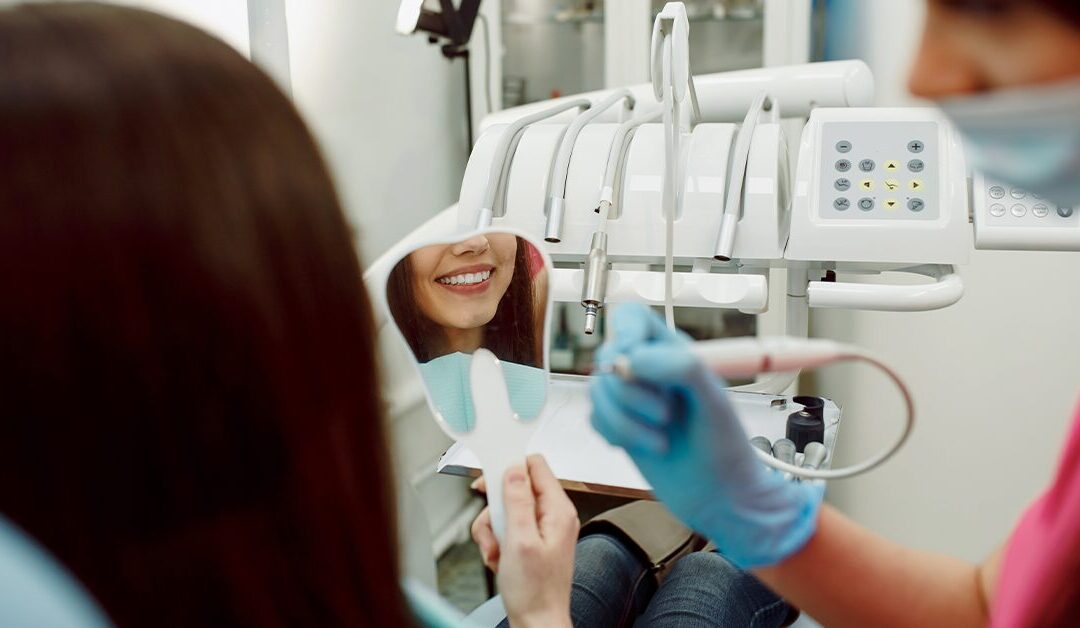Braces work wonders for your smile if you have misaligned teeth, but they make oral care more demanding. How?
Food easily gets trapped around brackets and wires, allowing plaque to build up faster than expected. Without regular cleaning, even the most promising orthodontic results can be compromised.
Many patients find maintaining oral hygiene with braces challenging, especially during the first few weeks. Hard-to-reach corners turn brushing into a careful mission, while flossing feels nearly impossible. The floss threaders keep getting stuck in wires, and the brushing angle does not feel right.
If you’re wondering how to maintain oral hygiene with braces without losing your mind, you need to go through this breakdown to prevent poor oral hygiene.
Why Do Orthodontists Suggest Braces?
Orthodontists recommend braces not just for cosmetic improvement, but for functional health. Straight teeth are easier to clean, align the bite properly, and prevent early enamel wear. Braces support long-term oral balance and help you enjoy the advantages of oral hygiene more fully.
Correcting misalignment through braces also improves speech, chewing efficiency, and confidence. When teeth fit together properly, there’s less strain on your jaw and surrounding muscles, keeping oral structures healthier for the long run. Braces are recommended to treat the following conditions:
Crowding: Teeth overlap due to a lack of space, making cleaning difficult and increasing plaque and tartar buildup.
Spacing Issues: Large gaps allow food particles to settle, leading to gum irritation and poor oral hygiene effects.
Overbite/Underbite: Misaligned bites cause uneven tooth wear and potential jaw pain.
Crossbite: Some teeth sit inside rather than outside the opposing arch, risking gum recession and enamel damage.
Brushing & Flossing With Braces: Easy Job Or A Challenge?
If you’ve ever tried brushing with braces, you know it’s not exactly a quick task. Brackets and wires create tiny traps for food, making standard brushing techniques less effective. Even after a good scrub, plaque may cling to orthodontic attachments. Then, how to maintain oral hygiene with braces?
Flossing feels like threading a needle; it is tedious but necessary. Many patients skip it altogether, often leading to gum swelling or decalcified spots. Understanding these struggles helps reinforce why oral hygiene instructions from your dentist matter so much during orthodontic treatment to avoid poor oral hygiene with braces.
Practical Oral Hygiene Instructions For Patients With Braces
Although brushing and flossing your teeth is difficult, it cannot be skipped. You can avoid problems by following this set of instructions:
Brush after every meal: Use a soft-bristled brush and fluoride toothpaste to remove trapped debris and plaque around brackets.
Angle your toothbrush: Tilt at 45 degrees toward the gumline to clean under wires and prevent poor oral hygiene effects.
Use interdental brushes: They clean between wires where normal brushes can’t reach, maintaining gum health and preventing decay.
Floss daily with a threader: It allows precise cleaning between teeth, reducing inflammation and improving overall oral hygiene.
Rinse with antimicrobial mouthwash: Helps kill bacteria and strengthen enamel, enhancing the benefits of oral hygiene care.
Limit sugary snacks: Sticky foods feed plaque bacteria and weaken enamel around brackets.
How Can Poor Hygiene With Braces Impact Your Teeth & Gums?
Ignoring oral hygiene instructions can cause plaque to harden into tartar, which irritates the gums. Over time, this may lead to gingivitis, gum inflammation, or even early periodontal issues. Poor oral hygiene with braces also risks white spot lesions, which are early signs of enamel damage.
You might need deep teeth cleanings or additional restorative procedures to reverse the effects of poor oral hygiene if neglected. Restorative treatments, such as fluoride varnishes or scaling, can help, but prevention is far easier and more cost-effective than correction.
Advantages Of Oral Hygiene
Good oral hygiene protects your smile from the problems braces might create. When you brush and floss consistently, you strengthen your enamel, keep your gums firm, and enjoy fresher breath throughout your orthodontic journey. Here are the key benefits of oral hygiene:
- Prevents gum disease and inflammation.
- Protects enamel from demineralization.
- Keeps teeth stain-free and healthy.
- Promotes fresh breath and comfort.
- Ensures faster and smoother orthodontic results.
Why Personalized Oral Hygiene Habits Are Important?
Every patient’s mouth tells a different story. Some experience loose brackets, others battle receding gums or tooth sensitivity. A one-size-fits-all plan doesn’t work here. Personalized oral hygiene with braces allows your dentist to target problem areas while keeping treatment safe and effective.
Customizing care ensures you get practical oral hygiene instructions tailored to your dental condition and lifestyle. That’s how you protect against poor oral hygiene effects while enjoying the long-term benefits of oral hygiene.Fancy Smiles Dental Studio offers more than personalized care for oral hygiene in Boynton Beach, FL. We go beyond routine cleaning advice for our patients. Our team provides individualized care, patient education, and professional support to ensure your braces journey is smooth, comfortable, and rewarding.
Frequently Asked Questions
Brush after every meal or at least twice a day to prevent plaque buildup.
Absolutely, just use a soft-bristled brush and gentle motion.
Flossing removes trapped debris and prevents gum inflammation.
It can cause staining, bad breath, and gum disease.
We offer tailored oral hygiene plans and professional cleanings for every patient.

